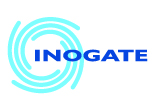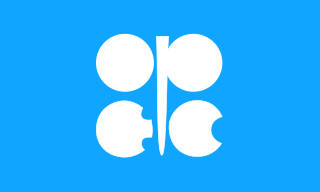 W
WAfrican Petroleum Producers Organization (APPO) is an organization of African countries producing petroleum. It was created on January 27, 1987 in Lagos, Nigeria, to serve as a platform for cooperation and harmonization of efforts, collaboration, sharing of knowledge and skills among African oil producing countries. The headquarters of the organization is in Brazzaville in the Congo. The Organization changed its name from African Petroleum Producers Association to African Petroleum Producers Organization in 2017.
 W
WThe Alliance to Save Energy is a coalition consisting largely of industrial, technological, and energy corporations. The Alliance states that its mission is to "support energy efficiency as a cost-effective energy resource under existing market conditions and advocate energy-efficiency policies that minimize costs to society and individual consumers, and that lessen greenhouse gas emissions and their impact on the global climate." The alliance's chief activities include public relations, research, and lobbying to change U.S. energy policy.
 W
WThe APNPP, an acronym of "l’association des pays non producteurs de pétrole", is an association of 15 African nations that signed a treaty in July, 2006.
 W
WThe Energy Community, also referred to in the past as the Energy Community of South East Europe, is an international organisation established between the European Union (EU) and a number of third countries to extend the EU internal energy market to Southeast Europe and beyond. With their signatures, the Contracting Parties commit themselves to implement the relevant EU energy acquis communautaire, to develop an adequate regulatory framework and to liberalise their energy markets in line with the acquis under the Treaty.
 W
WThe Energy Regulators Regional Association (ERRA) is a voluntary organization of independent energy regulatory bodies primarily from the Central European and Eurasian region, with Affiliates from Africa, Asia the Middle East and the USA.
 W
WThe Energy Technology Data Exchange (ETDE) was formed in 1987 and officially ended 30 June 2014. It was initiated as a multilateral agreement under the International Energy Agency (IEA) agreement network, replacing numerous other bilateral agreements. The multilateral agreement was for the international exchange of energy research and development and information. The exchange resulted in a database which was the world's largest collection of energy research, technology, and development (RTD) information. The collection of information was generated from energy RTD literature published in member countries and through other partnering arrangements with organizations such as the International Nuclear Information System. This had the effect of creating a broad spectrum of information that was included in the ETDE database. The range of content included fossil fuels, renewable energies, End-Use, fusion, energy policy, conservation, and efficiency, and cross-sectional activities. This fulfilled the need for timely exchange of global information towards the goal of a sustainable energy future. ETDE operated under an IEA Implementing Agreement and was governed by an Executive Committee of delegates from ETDE member countries. Officers of the Executive Committee included a Chair and two Vice-Chairs, elected to three-year terms. Day-to-day operations were managed through an operating agent organization, which reported to the Executive Committee.
 W
WThe European Federation of Energy Traders (EFET) is an association of European energy traders in markets for wholesale electricity and gas. EFET was founded in 1999 in response to the liberalisation of electricity and gas markets within the European Union. EFET advocates policies and regulatory measures which allow electricity and gas trading to develop freely while encouraging good risk management practices and responsible corporate governance. In its role as a standard setting body, EFET aims to provide standard solutions to common aspects of wholesale energy transactions, such as contracting and data exchange.
 W
WThe European Network of Transmission System Operators for Gas (ENTSOG) is an association of Europe's transmission system operators (TSOs). ENTSOG was created on 1 December 2009 by 31 TSOs from 21 European countries. Creation of the ENTSOG was initiated by the adoption of the European Union third legislative package on the gas and electricity markets. It aims to promote the completion and cross-border trade for gas on the European internal market, and development of the European natural gas transmission network. According to the third energy package ENTSOG is required to develop an EU-wide ten-year gas network development plan.
 W
WThe Gas Exporting Countries Forum (GECF) is an intergovernmental organization of 11 of the world's leading natural gas producers made up of Algeria, Bolivia, Egypt, Equatorial Guinea, Iran, Libya, Nigeria, Qatar, Russia, Trinidad and Tobago and Venezuela. GECF members together control over 70% of the world's natural gas reserves, 38% of the pipeline trade and 85% of the liquefied natural gas (LNG) production. The three largest reserve-holders in the GECF – Russia, Iran and Qatar – together hold about 57% of global gas reserves.
 W
WINOGATE was an international energy co-operation programme between the European Union (EU), the littoral states of the Black and Caspian seas and their neighbouring countries. The programme was operational from 1996 to 2016.
 W
WThe International Energy Agency is a Paris-based autonomous intergovernmental organisation established in the framework of the Organisation for Economic Co-operation and Development (OECD) in 1974 in the wake of the 1973 oil crisis. The IEA was initially dedicated to responding to physical disruptions in the supply of oil, as well as serving as an information source on statistics about the international oil market and other energy sectors.
 W
WThe International Energy Agency Energy in Buildings and Communities Programme, formerly known as the Energy in Buildings and Community Systems Programme (ECBCS), is one of the International Energy Agency’s Technology Collaboration Programmes (TCPs). The Programme "carries out research and development activities toward near-zero energy and carbon emissions in the built environment".
 W
WThe International Energy Forum (IEF) is an inter-governmental, non-profit international organisation which aims to foster greater mutual understanding and awareness of common energy interests among its members. The 70 Member Countries of the Forum are signatories to the IEF Charter, which outlines the framework of the global energy dialogue through this inter-governmental arrangement.
 W
WThe Partnership for Energy Efficiency Cooperation (IPEEC) is a high-level international forum which includes developed and developing countries. Its purpose is to enhance global cooperation in the field of energy efficiency and to facilitate policies that yield energy efficiency gains across all sectors globally. IPEEC provides information to decision-makers in major economies, facilitating candid discussions for exchanging ideas and experiences and helping countries undertake joint projects to develop and implement energy efficiency policies and measures at a global scale. It is also a forum for member and non-member economies to share information about various bilateral and multilateral initiatives. IPEEC supported initiatives are open to both member and non-member nations as well as the private sector. IPEEC is coordinating the implementation of the Group of 20 (G20) Energy Efficiency Action Plan, which was agreed by G20 leaders in late 2014 as a practical approach to strengthening voluntary international energy efficiency collaboration. Since July 2016, IPEEC is coordinating the Energy Efficiency Leading Programme (EELP) that provides the basis for a ‘comprehensive, flexible, and adequately-resourced’ framework for strengthened voluntary collaboration on energy efficiency among G20 members and beyond.
 W
WThe International Symposium on Alcohol Fuels (ISAF) is a non-profit international organization which gathers together specialists, technologists, executives and technical experts from alcohol, alcohol fuels, methanol, ethers and bio-fuel industries. ISAF came into being in 1976. The 2011 meeting (ISAF-XIX) will be held in Verona, Italy.
 W
WThe Joint Organisations Data Initiative (JODI) is an international collaboration to improve the availability and reliability of data on petroleum and natural gas. First named the "Joint Oil Data Exercise", the collaboration was launched in April 2001 with six international organisations: Asia-Pacific Economic Cooperation (APEC), Statistical Office of the European Communities (Eurostat), International Energy Agency (IEA), Latin American Energy Organization (OLADE), Organization of the Petroleum Exporting Countries (OPEC), and United Nations Statistics Division (UNSD). In 2005, the effort was renamed JODI, joined by the International Energy Forum (IEF), and covered more than 90% of the global oil market. The Gas Exporting Countries Forum (GECF) joined as an eighth partner in 2014, enabling JODI also to cover nearly 90% of the global market for natural gas.
 W
WThe Organization of the Petroleum Exporting Countries is an intergovernmental organization of 13 countries. Founded on 14 September 1960 in Baghdad by the first five members, it has since 1965 been headquartered in Vienna, Austria, although Austria is not an OPEC member state. As of September 2018, the 13 member countries accounted for an estimated 44 percent of global oil production and 81.5 percent of the world's "proven" oil reserves, giving OPEC a major influence on global oil prices that were previously determined by the so-called "Seven Sisters" grouping of multinational oil companies. A larger group called OPEC+ was formed in late 2016, to have more control on global crude oil market. The demand for OPEC oil has fallen to a 30-year low in the second quarter of 2020.
 W
WThe Offshore and Onshore Reliability Data (OREDA) project was established in 1981 in cooperation with the Norwegian Petroleum Directorate. It is "one of the main reliability data sources for the oil and gas industry" and considered "a unique data source on failure rates, failure mode distribution and repair times for equipment used in the offshore industr[y]. OREDA's original objective was the collection of petroleum industry safety equipment reliability data. The current organization, as a cooperating group of several petroleum and natural gas companies, was established in 1983, and at the same time the scope of OREDA was extended to cover reliability data from a wide range of equipment used in oil and gas exploration and production (E&P). OREDA primarily covers offshore, subsea and topside equipment, but does also include some onshore E&P, and some downstream equipment as well.
 W
WPetrocaribe is an oil alliance involving 18 Caribbean member states. The alliance was founded on 29 June 2005 in Puerto La Cruz, Venezuela, Venezuela offering the other member states oil supplies based on a concessionary financial agreement. Petrocaribe has been part of the "pink tide" in Latin America seeking to achieve post-neoliberal development in the region. In 2013 Petrocaribe established links with the Bolivarian Alliance for the Americas (ALBA) aiming to go beyond oil trade and promoting economic cooperation.
 W
WThe South American Energy Council is a body set up to co-ordinate the regional energy policy of the Union of South American Nations. Its establishment was agreed at the first South American Energy Summit, which took place on April 16–17 2007 on Isla Margarita in the Venezuelan state of Nueva Esparta.
 W
WThe World Energy Council is a global and inclusive forum for thought-leadership and tangible engagement with headquarters in London. Its mission is 'To promote the sustainable supply and use of energy for the greatest benefit of all people'.